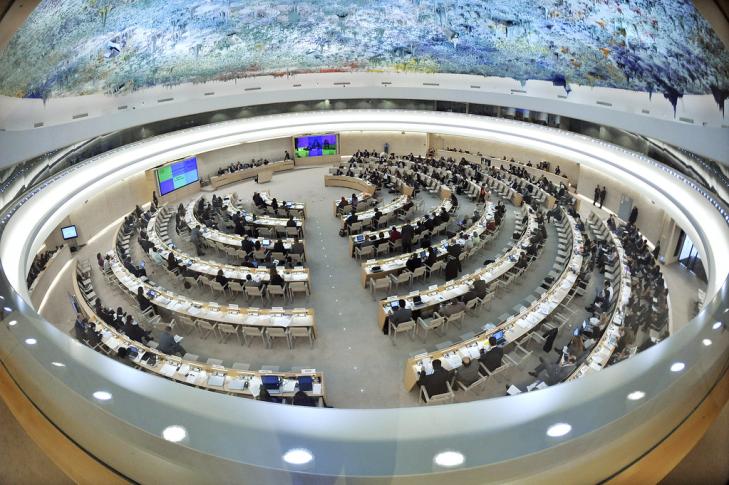
The 48th Session of the Human Rights Council (HRC) was held from 13 September to 8 October 2021. The HRC remains a key space for APC to raise concerns about threats and challenges to human rights online. Although HRC September sessions tend not to be focused on human rights online, here are some highlights of outcomes relating to digital rights at this past session.
Privacy in the digital age resolution
HRC48 concluded with the adoption of a new resolution on privacy in the digital age. APC welcomes this new resolution adopted on 7 October. Co-led by Brazil and Germany, it reaffirms the fundamental importance of the right to privacy as an enabler for the enjoyment of other rights, and renews commitments to ending all abuses and violations of this right worldwide. We welcome that the resolution specifically notes that violations and abuses of the right to privacy can have gender-specific impacts and that the use of artificial intelligence (AI) and biometric identification and recognition technologies can result in racial discrimination and human rights abuses.
As highlighted at the joint end of session statement, we believe it is now essential that the Council goes further and champions the call made by various UN human rights experts to implement a global moratorium on the sale, export, transfer and use of private surveillance technology, and to go further in calling for a ban on technologies that cannot be operated in compliance with international human rights obligations.
The impacts of AI privacy and other human rights: New report by the High Commissioner for Human Rights
During this session, the Office of the High Commissioner for Human Rights presented a new thematic report that addresses how AI affects the right to privacy and other rights, such as the rights to health, education, freedom of movement, freedom of peaceful assembly and association, and freedom of expression. In this report, the High Commissioner stressed the urgent need for a moratorium on the sale and use of AI.
The report reiterates the call for a human rights-based approach to AI and new technologies. Such an approach, says the High Commissioner, requires the application of core principles such as equality and non-discrimination, participation and accountability, legality, legitimacy, necessity and proportionality. The report also calls for AI to be deployed in a way that facilitates the realisation of economic, social and cultural rights by ensuring that their key elements of availability, affordability, accessibility and quality are achieved. It further states that those who suffer human rights violations and abuses relating to the use of AI should have access to effective judicial and non-judicial remedies. Among other things, the High Commissioner recommends that states and companies “systematically conduct human rights due diligence throughout the life cycle of the AI systems” and that a key element in diligence should be regular, comprehensive human rights impact assessments.
We welcome the High Commissioner recommendations to states to ensure that the use of AI is in compliance with all human rights, and the call to expressly ban AI applications that cannot be operated in compliance with international human rights law, and impose moratoriums on the sale and use of AI systems that carry a high risk for the enjoyment of human rights and on the use of remote biometric recognition technologies in public spaces, at least until the authorities responsible can demonstrate compliance with privacy and data protection standards.
Universal Periodic Review: Violence against women in Paraguay
At its Universal Periodic Review in May 2021, Paraguay received 210 recommendations on its human rights situation. After examining them, the country reported to the Human Rights Council during the HRC48.
Although there were no specific recommendations relating to the internet and human rights or online gender-based violence, Paraguay received a number of recommendations relating to the need to address discrimination and for comprehensive protection of women against all forms of violence, one of the topics of our joint report with TEDIC presented to the UPR Working Group. You can access a summary of the report here. This is also available in Spanish.
Other main issues in the recommendations from states were connected with the need to protect the civic space and guarantee freedom of expression, association, and assembly, and end detention of civil society actors, human rights defenders, and journalists.
You can access all the recommendations in the Report of the Working Group on the Universal Periodic Review of Paraguay.